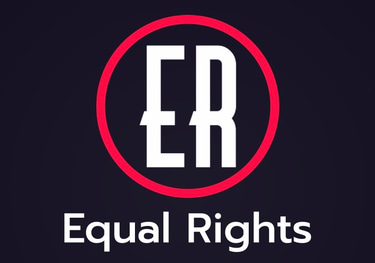Racial Disparities in Oregon's Healthcare System:
Challenges & Solutions
Kylo B
5/1/2024
Racial Disparities in Oregon's Healthcare System: Challenges & Solutions
Racial disparities in healthcare persist as a pressing issue in Oregon, reflecting broader systemic inequities that impact health outcomes for communities of color. Understanding the challenges faced and identifying effective solutions are crucial steps towards achieving health equity and addressing racial disparities.
In this article, we explore the landscape of racial disparities in Oregon's healthcare system, examining key challenges and proposing actionable solutions to promote equitable healthcare access and outcomes.
Understanding Racial Disparities in Healthcare
Racial disparities in healthcare refer to differences in health outcomes and access to healthcare services based on race or ethnicity.
These disparities are shaped by various factors, including socioeconomic status, discrimination, cultural barriers, and systemic inequities in healthcare delivery.
Key Challenges Contributing to Racial Disparities
Access Barriers: Communities of color often face barriers to accessing quality healthcare services, including lack of insurance coverage, transportation issues, and shortage of culturally competent providers.
Healthcare Quality: Disparities in the quality of care received by racial and ethnic minorities, including diagnostic delays, treatment disparities, and higher rates of medical errors.
Social Determinants of Health: Structural factors such as housing instability, food insecurity, and exposure to environmental hazards disproportionately affect health outcomes in communities of color.
Implicit Bias: Unconscious biases among healthcare providers can lead to differential treatment and contribute to disparities in diagnosis, treatment, and patient outcomes.
Impact of Racial Disparities
Racial disparities in healthcare have significant consequences:
Health Outcomes: Communities of color experience higher rates of chronic diseases, infant mortality, and mortality from preventable conditions compared to white populations.
Economic Burden: Disparities contribute to higher healthcare costs, lost productivity, and increased burden on healthcare systems.
Social Injustice: Healthcare disparities reflect broader social injustices and systemic racism, perpetuating inequities and undermining public health efforts.
Addressing Racial Disparities: Solutions & Strategies
Culturally Competent Care: Promote diversity in the healthcare workforce and provide training on cultural competence and anti-racism to healthcare providers.
Community Engagement: Collaborate with community organizations and leaders to address social determinants of health and improve access to healthcare resources.
Policy Reform: Advocate for policies that expand healthcare coverage, reduce barriers to care, and address implicit bias in healthcare delivery.
Data Collection & Monitoring: Enhance data collection on race and ethnicity in healthcare to identify disparities, track progress, and inform targeted interventions.
Health Equity Initiatives: Implement initiatives that prioritize health equity, including community health programs, patient navigation services, and health literacy campaigns.
Community Empowerment & Advocacy
Communities impacted by healthcare disparities play a vital role in advocating for change:
Empowering Communities: Support grassroots efforts and community-led initiatives to address healthcare disparities and promote health equity.
Policy Advocacy: Amplify the voices of communities of color in policymaking processes to advance equitable healthcare policies and resource allocation.
Addressing racial disparities in Oregon's healthcare system requires a multifaceted approach that addresses systemic inequities, promotes cultural competence, and prioritizes community engagement and empowerment.
By implementing targeted interventions, advocating for policy reforms, and fostering partnerships between stakeholders, we can work towards achieving health equity and ensuring that all individuals, regardless of race or ethnicity, have access to quality healthcare and equitable health outcomes.
Together, let us confront racial disparities in healthcare and build a healthier, more just Oregon for everyone.
